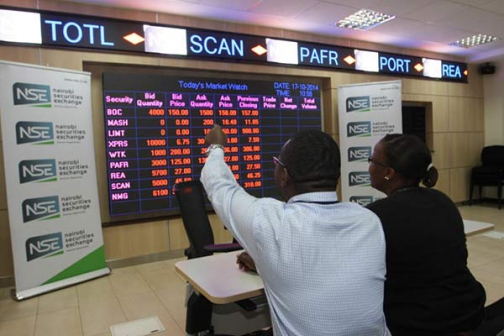×
The Standard e-Paper
Join Thousands Daily

The capital markets regulator will charge investors less than 1 per cent of the value of derivative contracts used to bet on whether a stock, bond, currency or an index will go up or down.
In proposed fees released yesterday, CMA said it will charge 0.14 per cent for equity index futures contract and 0.17 per cent for single stock futures contracts.